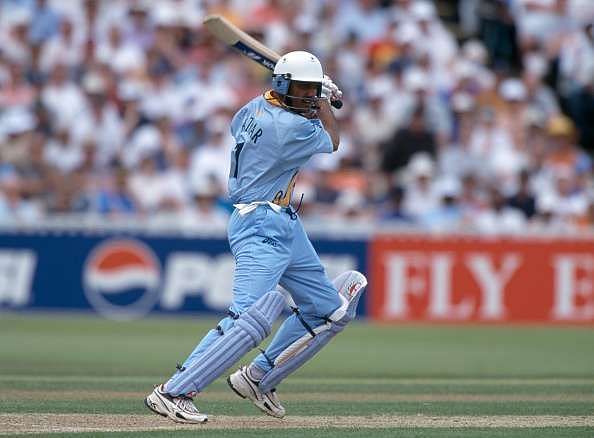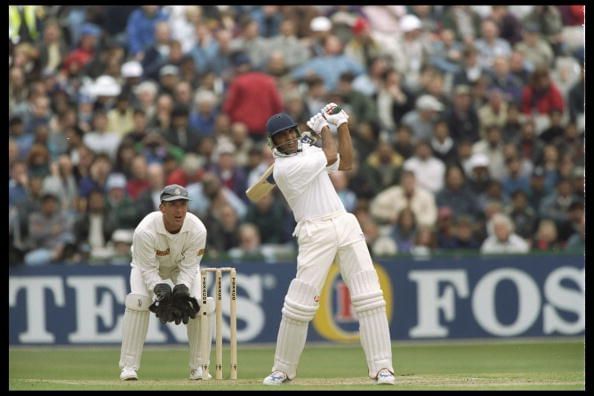
Mohammad Azharuddin: Uncertainty was the only certainty
A batting average of over 45 in 99 Test matches and the distinction of scoring 9000+ runs in 334 ODIs will normally give you a place in the all-time legends club of your country. But, if the dreaded term ‘match-fixing’ gets associated with you, then all the glory gets reduced to ashes within no time. And who would know this better than former Indian skipper Mohammad Azharuddin, the man with this illustrious record?
Glittering career & Match-fixing will go with him to his grave

Now, whether he likes it or not, there are two aspects of his life which have been inked to his name forever. One that he was a successful cricketer and the other being that he was banned for match-fixing. His haters will want to erase his cricketing records. Similarly, his supporters will want to delete the term ‘match-fixing’ from his biodata on grounds that the ban on him was lifted by the Andhra Pradesh High Court. But, I believe such is a life that Azhar (as he was fondly called) will have to take both these with him to his grave.
The fact is that on one hand the loyal cricket fans felt betrayed by Azhar and on the other, his career came to an abrupt end. ‘Match-fixing’ will probably always remain like an albatross around his neck. So, I will not dwell on debating the right and the wrong. Today, as the man turns 55 years old, my memory goes back to the happier times when the loudest cheers from the crowd were reserved for the famous flick from the wrists of Azhar bhai.
Azhar’s batting was like poetry in motion
On his day, Azhar’s batting was like poetry in motion. He was a magician with the bat in his hand, with his tabeez (amulet) coming out of his t-shirt as he would dance down the pitch to spinners. Balls pitched way outside the off-stump would be flicked effortlessly to the on-side boundary as though pages of a book were being turned. Then there was this exaggerated back & forth movement while playing the square cut. Azhar in full flow was a treat to the eyes of any cricket fan.
His entry to the cricket arena was as grand as it could get. He hit three centuries in his first three test matches, a feat that has not yet been matched. And slowly, he became the mainstay of the Indian batting for the next decade or so. Along, with his batting, he was also an athletic fielder at a time when the Indian team’s fielding was nothing to write home about. Be it at gully or slips, he had a safe pair of hands. With 156 catches in ODIs, he is the person with the third highest number of catches for a fielder.
“Miyan, Captain banoge”
The next important phase in the career of Azhar came when Rajsingh Dungarpur uttered the now famous words, “Miyan, Captain banoge?” (Will you become the captain?) Azhar accepted the proposal and became the skipper. He led India in 47 Test matches and 174 ODIs, in the process becoming one of India’s most successful captains (until his records were broken by Sourav Ganguly in tests and by MS Dhoni in ODIs).
“As Azhar played one stroke after another, they shook their heads in disbelief and admiration”

During the course of his 15-year long career, he played many memorable innings. His knock of 121 against England at Lord’s in 1990 had come in for praise from all quarters. Describing that innings, Harsha Bhogle had written, “Nobody at Lord’s that day was supporting a nation. Instead, they had joined hands to soak in the beauty of the game, and as Azhar played one stroke after another, they shook their heads in disbelief and admiration.”
Similarly, his innings of 115 runs against South Africa at Cape Town in 1997 was a collector’s edition, when he had stitched together a partnership of 222 runs with Sachin Tendulkar. Then, there were the cameos like the 29 runs off 10 balls against Pakistan at Sharjah in 1996, when he hit 24 runs of Ata-ur-Rehman.
But in between these great innings, he could get out to shots which most people would call as careless. Likewise, as a captain, though he led India to many famous victories, many of his decisions had come for harsh criticism. In the end, I will say that much like life, uncertainty was the only certainty with Azhar.